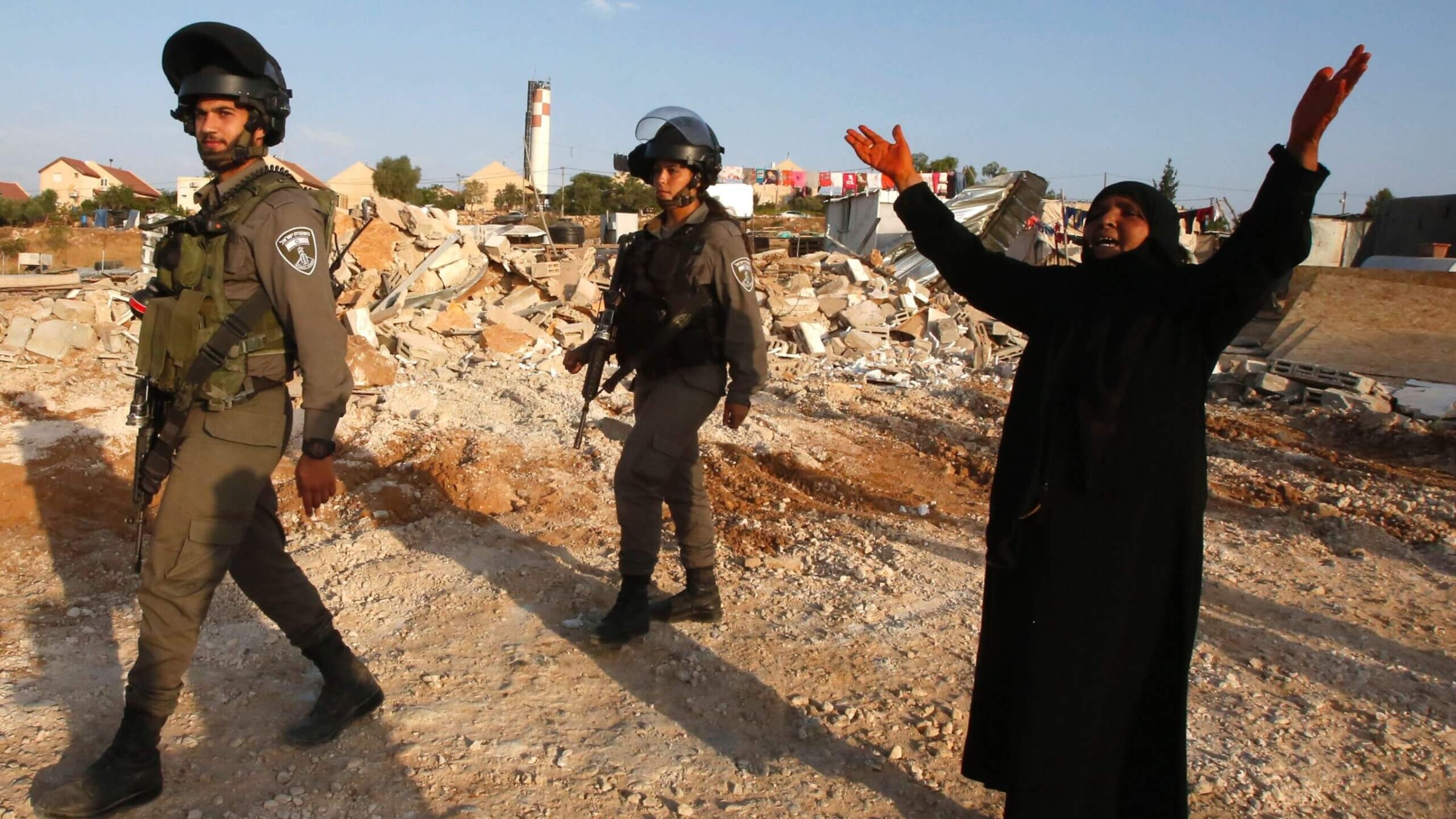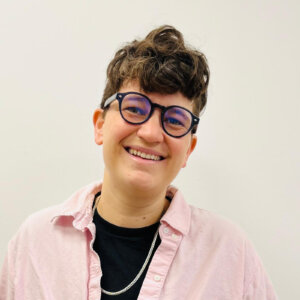The ICJ ruling is a welcome step, but Palestinians in the West Bank are running out of time
The UN’s highest court ruled that the Israeli occupation of the West Bank, East Jerusalem and Gaza was illegal

A Palestinian woman reacts as Israeli bulldozers destroy her home and a community center in the West Bank village of Umm al-Kheir, August 24, 2016. Photo by Hazem Bader/AFP via Getty Images
“Who will protect us?”
Tareeq Hathaleen, a resident of Umm Al Kheir, a Palestinian village in the South Hebron Hills of the West Bank, looked to me and the tour group of Israelis I was leading for answers. Life in Umm Al Kheir, as in the rest of the West Bank, has been harrowing since Oct. 7, with near-daily violence from both settlers and Israeli soldiers. Just weeks prior to our visit, the Israeli Civil Administration had demolished 11 buildings, leaving 38 people homeless. Settlers subsequently cut off the village’s water supply a few days later.
I was leading the tour to Umm Al Kheir as part of my role as senior director with Breaking the Silence, an Israeli nonprofit that collects and publishes IDF soldiers’ testimonies in order to expose the Israeli public to the reality of occupation and its cost to Israeli and Palestinian society. Our group of dozens of Israelis sought to witness firsthand the daily struggles faced by communities living under occupation in the past months.
Hours after our visit, the International Court of Justice ruled that Israel’s occupation of the West Bank, East Jerusalem and Gaza was illegal. The court’s findings were damning, citing forcible transfer of Palestinian communities, unlawful settlements, racial segregation and violation of Palestinians’ right to self-determination.
The international community’s increasing pressure on Israel, including the ICJ ruling (which forbids member states from rendering aid or assistance in maintaining it), and the sanctions against violent settlers and settler organizations issued by some of Israel’s closest allies, is undoubtedly important. Combined, it creates real pressure on Israel to end the occupation. However, that same pressure is also likely to lead the Israeli government and the settler movement to escalate its violence against Palestinian communities in the short term.
The Israeli government’s response to the ICJ was swift and defiant. Prime Minister Benjamin Netanyahu declared, “The Jewish people are not occupiers in their own land,” while extremist ministers Bezalel Smotrich and Itamar Ben-Gvir called for outright annexation of the West Bank.
Within an hour of the ICJ ruling, Israeli settlers attacked a Palestinian family outside their home in Sha’ab al-Botum, another South Hebron Hills community, while Israeli soldiers stood by. At least one of the Israeli soldiers on the scene was local settler Yedidia Talia, from the outpost of Talia Farm, known for its violence towards Palestinians. He shot in the air towards the Palestinian family as they asked him for protection from the attack. The army is aware of the case and, despite a Palestinian woman suffering a skull fracture from five settlers beating her with rods, no one has been arrested or even reprimanded.
The message for the family was clear: No one here is protecting you.
This attack does not exist in a bubble. The past 18 months have seen extreme settler violence with almost full impunity, an unchecked increase in Palestinian fatalities at the hands of the army, and a restructuring of Israel’s Civil Administration — Israel’s governing body in the West Bank — so that a large swath of its power to decide on civilian issues is now under the control of pro-annexation minister Smotrich. This multi-layered, systemic violence is not a coincidence, especially when implemented by a government whose coalition agreement reads “the Jewish people have an exclusive right on all the land between the Jordan River and the Mediterranean Sea.”
In this broader context, settler violence puts direct pressure on Palestinian families and whole communities to leave their villages in Area C, an area of the West Bank under direct Israeli military control. At least 18 communities have been forcefully transferred in full since Netanyahu’s government came into power on Dec. 29, 2022. The joint settler and military violence on Umm Al Kheir are a clear attempt to force them to leave as well.
This stark reality raises a critical question: Who will protect these defenseless communities as international efforts slowly progress and the Israeli state takes swift, potentially irreversible steps towards annexation and dispossession?
As an Israeli advocate for justice and equality for Israelis and Palestinians, I believe we all have a role to play.
We must stand in solidarity with Palestinian communities in danger of forcible transfer, amplify their voices and draw media attention to their plight. For those in the U.S., who is not an ICJ member, applying public pressure on your elected officials and demanding an end to the settler violence and the near-suffocating military policies aimed against these communities is crucial. While sanctions of settlers and settler organizations are an important step, the American government, Israel’s strong ally, has the ability to hold Israel accountable and make sure it makes drastic changes in policy on the ground.
While the ICJ’s opinion is a crucial step toward ending Israeli control over Palestinians, we must remember that behind every legal ruling and political decision are real people — families in Umm Al Kheir, Sha’ab al-Botum and countless other Palestinian villages — whose lives and communities hang in the balance. Their protection cannot wait for the slow wheels of international justice to turn.
The occupation will end, not merely because the ICJ deemed it illegal, but because it is inherently immoral and unsustainable. However, the road to this end is likely to be long and violent, unless these long-term diplomatic and political pressures are matched with immediate security for the communities they aim to protect.






















